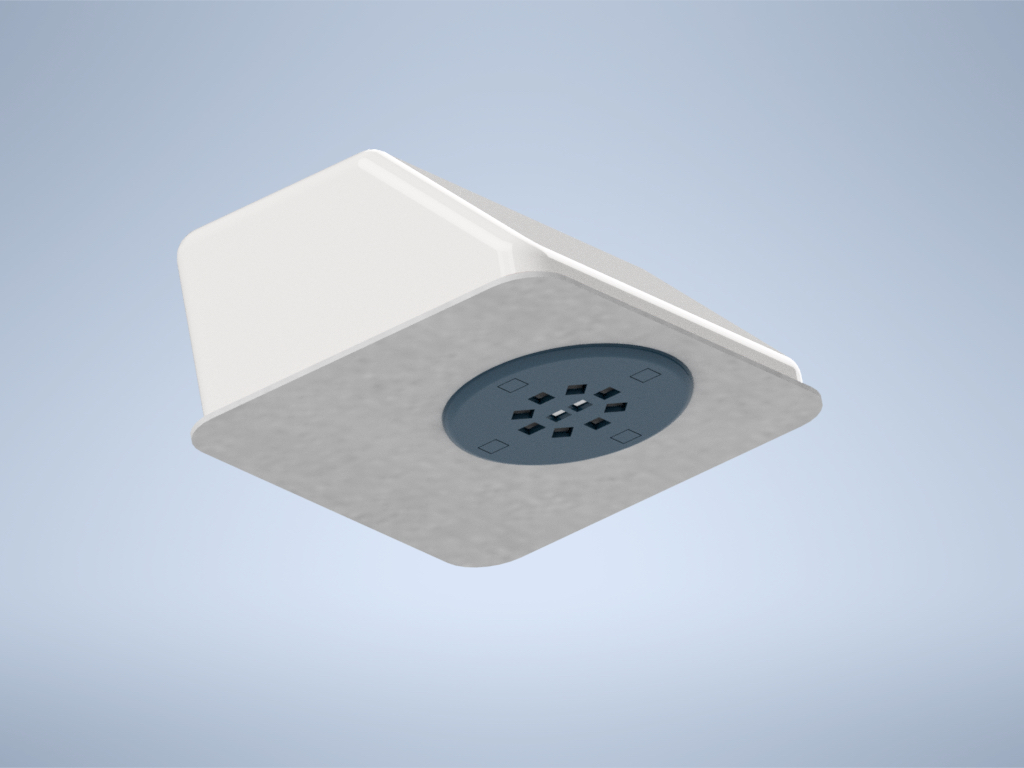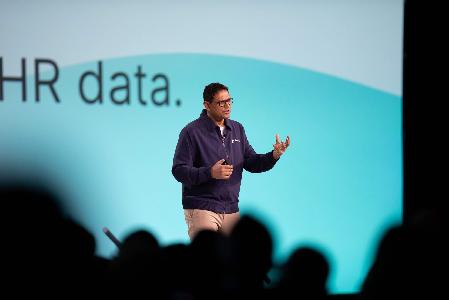At the time, Holden’s full-time job was working in product and operations at Infinitus Systems, a San Francisco-based AI platform for healthcare professionals. But the experience made him decide he could use his background in medical device work and degree in biomedical engineering to address the opioid epidemic. Fast forward to 2022, and Holden would pitch his idea — a wearable medical device designed to detect and reverse overdoses using naloxone to prevent deaths — to his would-be cofounder and CTO Charlie Proctor.
A company started to take form.
“Most Americans have certainly been impacted by the opioid epidemic,” Holden told Technical.ly. “They either have had high school classmates or football teammates that were struggling with addiction and faced all different outcomes.”
Resilient Lifescience aims to make those outcomes a little less grim. The North Side-based startup’s wearable patch can be worn on an individual’s abdomen and monitor their vitals. Should the device detect an overdose, Proctor said, it would automatically inject naloxone into their system. Last year, the company finished its proof-of-concept device and since then has been taking a 3D-printed device and preparing it for manufacturing. Over the next year, Holden and Proctor plan to continue development on this sensor.

A rendering of Resilient Lifescience’s most recent sensor prototype used for testing. (Courtesy image)
A key part of the device’s development has been working with harm reduction organizations in Western Pennsylvania, such as the Allegheny County Health Department, due to the agency’s harm reduction efforts, per Proctor. While the cofounders couldn’t share every organization the company is partnering with as details are finalized, they explained that they appreciate the opportunity to speak with individuals with firsthand experience with addiction.
“We had the opportunity to speak with a lot of people who’ve struggled with opioid use and are in different phases of their journey,” Proctor said. “It’s really eye-opening, just the battles they’re fighting and the opportunity that exists to support them along the way.”
The company has also benefited from participating in life sciences-focused accelerators such as LifeX, where the cofounders got to learn from other startups and established medical device companies. And as a Carnegie Mellon University alumni, Holden said he felt that the mentorship received from the university’s Schwartz Center for Entrepreneurship and Project Olympus has been indispensable.
Another piece of support Resilient Lifescience received in the past year came in the form of $500,000, when the startup took home first place in the Richard King Mellon Foundation’s second-ever Social-Impact Investment Pitch Competition. That followed a $220,000 raise in April 2022. The company is now in the process of raising a seed round of $1.5 million, and its founders said they’re glad to be able to use the award to support the company’s research and development in the meantime.
“The impact of our device could be in the tens of thousands of lives saved per year.”Brad Holden Resilient Lifescience
“The impact of our device could be in the tens of thousands of lives saved per year,” Holden said, “which we believe is very much aligned with a social impact venture competition.”
This summer, the startup plans to conduct a clinical study within the city where it’ll train the algorithm and device on baseline vitals collected from a series of healthy volunteers. After that, Proctor said, by the beginning of 2024, they’re hoping to partner with a supervised injection facility in order to show that it can detect an overdose in a real-world setting.
Harm reduction remains a controversial subject for some. Holden believes that in order to combat the prevalence of opioid overdoses, technology will be a critical tool in the struggle.
“The existing forms of naloxone aren’t going to be able to address the overdose death rate that is occurring in our country right now,” Holden said. “We could spend an unlimited amount of money as a country on Naloxone into nasal spray naloxone and the best is going to make a 25% dent in that number because there’s just not anyone around to save these lives at someone’s overdosing on their own. So we believe that this technology that we’re building is really critical if we want to make a significant dent in opioid overdose deaths in the US.”
Atiya Irvin-Mitchell is a 2022-2024 corps member for Report for America, an initiative of The Groundtruth Project that pairs young journalists with local newsrooms. This position is supported by the Heinz Endowments.Join the conversation!
Find news, events, jobs and people who share your interests on Technical.ly's open community Slack

RealLIST Connectors 2024: Meet 20 leaders spreading innovation throughout Pittsburgh

Is AI really something new — or just the next big technology platform?

This Week in Jobs: Get out there with 22 new job opportunities available to you!


